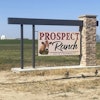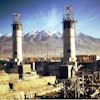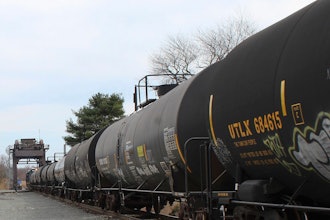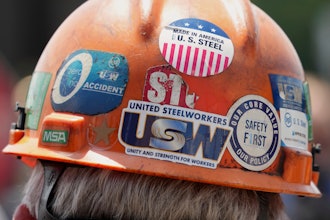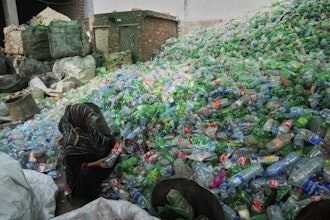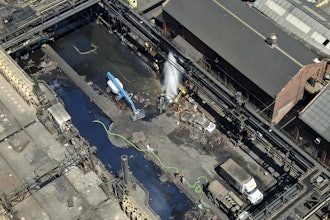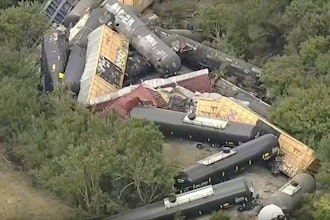HELENA, Mont. (AP) — BP-owned Atlantic Richfield Co. must pay nearly $29 million for the cleanup of arsenic that is threatening a Montana town's groundwater, an amount that includes $1 million for misleading environmental regulators and letting another company take the blame, a federal judge ruled.
U.S. District Judge Dana Christensen's ruling on Tuesday comes in the cleanup of a former lead smelter in East Helena that operated from 1888 until 2001 and has been a Superfund site since 1984. A groundwater plume containing high levels of arsenic and selenium is spreading from the site toward the town of about 2,000 near Montana's capital city.
Long-term exposure to drinking water contaminated by arsenic increases the risk of skin, lung and bladder cancer, and may cause diabetes, pulmonary disease and cardiovascular disease, according to the World Health Organization.
Cleanup efforts so far have been focused on slowing the spread of pollution while a permanent solution is explored. Those efforts, which include removing contaminated soil, diverting a creek and draining other polluted waterways, have been funded solely by Grupo Mexico-owned Asarco, the smelter owner formerly known as the American Smelting and Refining Company.
Christensen's ruling on Tuesday said Atlantic Richfield is responsible for 25 percent of the $114.5 million that Asarco has paid under a 2009 Superfund agreement. Asarco's smelter was responsible for most of the pollution, but the Anaconda Copper Mining Co. also discharged significant levels of arsenic over the 45 years it operated a zinc extraction plant at the smelter site, the judge said.
Anaconda, which was bought by Atlantic Richfield in 1977, used the factory to burn slag produced by the lead smelter to get zinc dust.
Atlantic Richfield, also known as Arco, also is a responsible party in another Montana Superfund site, the nation's largest, involving pollution from mining and mineral processing in southwestern Montana, including Butte and Anaconda.
Atlantic Richfield's 25 percent share of the East Helena costs, which the judge calculated based on estimated pollution discharge over those 45 years, comes to $27.9 million. The judge added $1 million to the bill after concluding that the company failed to provide documents requested by the U.S. Environmental Protection Agency, made false claims and misrepresented its operations at the East Helena site.
"Anaconda and Atlantic Richfield made multiple false and misleading statements to the EPA," the judge's ruling read. "Based on Atlantic Richfield's deliberate failure to tell the EPA the truth about its operations, EPA looked solely to Asarco to conduct remedial action at the site."
Gregory Evans, an attorney representing Asarco, said Arco could be on the hook for as much as $51 million after interest and attorney fees. He said the ruling confirms the federal Superfund law works by allowing companies that take responsibility to recover some of their costs from other companies "that didn't display such good citizenship."
"Unlike Asarco, Arco tried to avoid all liability and never acknowledged even the smallest impact it had," Evans said. "They hid the ball. Arco hid the ball from the EPA, Arco hid the ball from Asarco."
BP America spokesman Michael Abendhoff said the company is reviewing the ruling and did not have an immediate comment.
Atlantic Richfield had argued during the court proceedings that Asarco was responsible for the contamination, and that the zinc and coal used in Atlantic Richfield's operations contain relatively low levels of arsenic.
Christensen said that logic ignores the multiple sources of arsenic-loaded contamination that the company contributed to the site over 45 years.
About $50 million is left in the trust fund set up with Asarco's money to clean up the polluted groundwater. Evans said Asarco believes that's enough to complete the job, though there is no end date in sight, but added that Atlantic Richfield can now be held responsible if there are any future additional costs.


